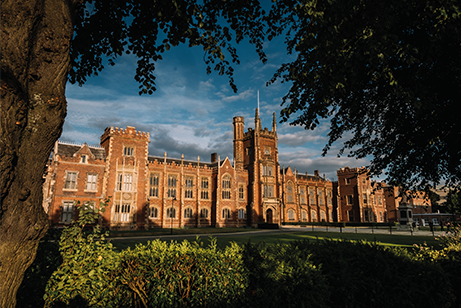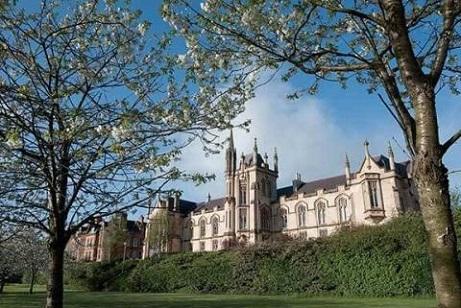Northern Ireland is home to a highly educated, innovative and results-driven workforce
Northern Ireland has a steady stream of enthusiastic, talented people for international companies seeking a strong workforce. The region’s universities and further education colleges work closely with businesses to ensure a pipeline of talent with relevant skills and qualifications.
Assured Skills Academies
Companies looking to expand across borders won’t find anything in Europe quite like Northern Ireland’s Assured Skills Programme. This is a fully funded, pre-employment training programme that guarantees incoming companies can secure the right talent with the right skill sets.
With direct input from participating companies and in collaboration with Northern Ireland’s colleges, newly arriving operations can hit the ground running. The Academy Model is flexible and has been used to help companies recruit new staff in areas such as software development, data analytics, cyber security, applied intelligence, legal services and financial services.
Further and Higher Education
Queen's University Belfast
Queen’s University Belfast is over 175 years old; it is a member of the Russell Group of 24 leading UK research-intensive universities and ranked in the top 140 in the world for graduate prospects.
Queen's University is the number one university in the UK for commercialising research and is joint first in the UK for research intensity.
Ulster University
Ulster University is Northern Ireland’s largest university, with over 27,000 students. The university has three campuses in Northern Ireland – in Coleraine, Derry~Londonderry and Belfast and its new Belfast campus is one of the largest higher education capital builds in Europe. The university also has a Sports Village in Jordanstown, just outside Belfast.
The university has 19 active spin-out companies, with a collective turnover in excess of £50 million, employing over 700 staff.
Further education colleges
Northern Ireland is home to six further education colleges with around 29 campuses spread across the region. These colleges develop a comprehensive portfolio of academic and vocational courses that include A-Levels, foundation degrees, apprenticeships and higher level apprenticeships.
You may also be interested in
Our Sectors
Northern Ireland has expertise across a range of sectors, including digital technologies such as fintech, cyber security and AI; in advanced manufacturing sectors like aerospace and materials handling and across a wide range of professional services.Find out moreWhy Northern Ireland?
Northern Ireland is a great place to grow a business internationally thanks to its highly skilled talent, excellent infrastructure, competitive costs, and supportive, business-friendly environment.Find out moreInvest in Northern Ireland
Northern Ireland offers more than just skilled people, competitive costs and great infrastructure; it's a location that delivers altogether more for investors.Find out more



